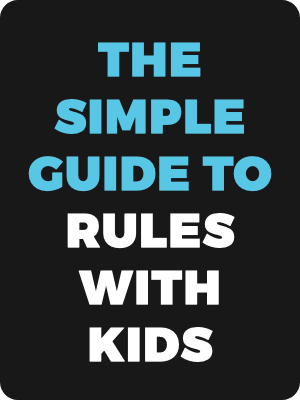We asked 1,843 teens what they lie to their parents about…here’s what they said.
Most parents wish they could get inside the mind of their teenager.
As someone who has worked with thousands of teens and parents for over a decade, I have a direct line of communication that allows me to ask some candid questions. With so much in the news recently about the issues teens have been grappling with — from suicide to cyber bullying.
I wanted to know what teens are actually thinking about these topics. So I asked our online community of 13-18 year olds and 1,843 of them responded.
Because this survey was anonymous, there’s no way to account for the demographics of the survey participants beyond their age range. Because of this, it’s difficult to make generalizations about the data. But clues do emerge that can be helpful to parents and other caring adults.
The following were key findings from the survey.

For experts, therapists and psychologists who work with teens, these results were in line with what they’re seeing in the field and in their practice.
“The percentage of teens lying to their parents about suicide and drugs is consistent with my conversations with them,” said Ross Szabo, the Wellness Director of the Geffen Academy at UCLA. “This is the main reason it’s vital to open communication with teens from a young age about their emotions and coping skills.”
Additionally, psychologists who work with teens are quick to point out that a teen having thoughts about suicide is not the same thing as a teen planning his or her own suicide.
“Most teens aren’t eminently suicidal,” said Dr. Jerry Weichman, a clinical psychologist and founder of the Weichman Clinic who specializes in adolescents. “They have suicidal ideation which means that they have thoughts about suicide simply because they are so overwhelmed by the various situations they’re struggling with in life because they have no other way or tools1 to deal with how they’re feeling so this is where their mind takes them to.”
For many parents, it might be alarming to see that nearly a ⅓ of teenagers are lying to their parents about having suicidal thoughts, but if you understand the interior life of teens, it begins to make more sense.
“When they have suicidal thoughts they’re worried they will be labeled for the rest of their lives, so they hide,” Szabo said. “Some teens don’t want to open up, because they don’t want their parents to worry about them. And others don’t know how to tell anyone what they feel, which is why it’s important for parents and adults to begin those conversations.”
The anonymous survey revealed some other interesting data:



Here, again, psychologists who work with teens aren’t surprised by the results of the survey.
“It is not surprising the school stress is highest, given the tremendous pressures on teenagers to achieve, and the increased competition for college,” said Dr. Gene Beresin, professor of psychiatry at Harvard Medical School and executive director of the Clay Center for Young Healthy Minds. “Also while unemployment is high, students who are not going to college feel increased pressures to achieve in school.”
But meaningful connections are what help teens process stress and cope with life, and ironically, it may be the lack of those human connections that drive teenagers to their biggest stress point: school. Dr. Jennifer Freed, a licensed therapist and executive director of the AHA! teen program, proposed that the way schools operate don’t allow for much meaningful connection.
“Teens are stressed by school because most schools do not address the whole person but favor achievement and popularity,” Freed said. “Healthy relationships are the key ingredient to a fulfilling life and yet schools rarely focus on the skills necessary to have healthy and diverse connections.”
But regardless of the causes, experts agree that teens need to talk to their parents.
“Few teens are going to talk with their parents about ‘drugs, sex and rock-n-roll’ – well, at least the drugs and sex,” Beresin said. “What is worrisome is that almost a third would NOT talk with their parents about suicidal thoughts.”
WHAT NOW
For parents, this survey can be a way to begin an important conversation. Remember, your goal is to create a space where your teen really can feel free to share whatever’s going on in their life, and to identify potential reasons why they’re hiding or clamming up.
Step 1: Show these survey results to your teen.
Step 2: Ask your teen some strategic questions like…
- “Did any of those survey results surprise you?”
- “Do you think those results reflect what you see with your own friends?”
- “What did you think the most important question was?”
Step 3: Remember the mantra that vulnerability leads to vulnerability, so (appropriately) share about a time when you were a teenager and you didn’t feel safe sharing something with your own parents. Why didn’t you talk to them? What prevented you from talking?
Step 4: Ask your teen, “Do you feel, sometimes, that there are things you have to hide from me?” If teen opens up about barriers they feel exist between you, try your hardest not to get defensive. If necessary, use this line: I am so sorry to hear you feel that way. I certainly never meant to make you feel that way. What could I do to be better at that?
FINAL THOUGHTS
One of the more chilling results from this survey that we didn’t directly touch on was this: nearly ¼ of teens say that they don’t feel that their parents love and support them. Now, nearly all teens say that they understand that their parents love them, but it’s that second word – support – that’s the crucial aspect.
Love AND support.
For some reason, parents have a hard time believing that it’s even possible to love someone deeply and yet not communicate it to them in a way that they understand and feel. But it is. If this survey helps parents take stock of their relationship with their teen and identify things – however minor – that might be preventing clear and honest communication, then that’s the real victory.
It takes real courage to wade into those conversations because you might hit a raw nerve ending – either in yourself or your teen.
But if at the end of the day, your teen more clearly understands that you are FOR them and want to know what’s really going on inside them, then it will be worth it.
1 Here’s an important tool. Let your teen know about the Crisis Text Line (if not for themselves, definitely for their friends). Any teen can text the word “HELP” to 741741 and a trained crisis counselor will begin texting with them. This service is available 24 hours a day and the crisis counselor will either be able to help them directly, refer them to resources close to them or if they’re eminently suicidal, authorities can see their location and send the police right to where they are to help save their life.




